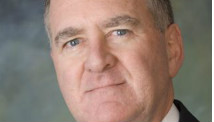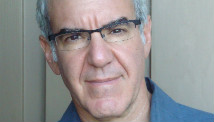STORY HIGHLIGHTS
- David Bartlett: For Carnival, impact of 'cruise from hell' potentially devastating.
- Passenger video, media puts Carnival increasingly on the defensive, he says
- He says it must show real concern, lay out plan, go a long way to make amends
- Don't try to justify or explain, he says, but get proactive now about fixing problem
Editor's note: David Bartlett is a senior vice president of Levick, a crisis and issues management and strategic communications firm based in Washington. He is the author of "Making Your Point" (St. Martin's Press), a guide to communication strategy and tactics.
(CNN) -- As three tugboats towed the disabled Carnival cruise ship Triumph back to port in Mobile, Alabama, things went from bad to worse.
The fire that caused the ship to lose power and drift aimlessly on rough Gulf of Mexico swells was just the beginning. Raw sewage seeped into corridors and cabin ways. Food had to be rationed. There were fears of looting. Not surprisingly, passengers were furious and emotional. Some were reported to be "acting like savages."
For Carnival and the rest of the cruise line industry, the implications are potentially devastating. The deadly capsizing in January 2012 of the Costa Concordia ship off the coast of Italy still lingers in the public's mind. About a month later, the Costa Allegra liner suffered a similar engine fire, lost power, and was set adrift in pirate-infested waters in the Indian Ocean. Carnival owns Costa Cruises, and now a third high-profile crisis for Carnival in just over a year threatens to cement the perception among vacationers that cruising might not be worth the risk.
Five things we've learned about cruises

David Bartlett
In the age of social and digital media, the problems faced by cruise lines are compounded. Using mobile phones, passengers aboard the Triumph have been providing concerned family members with constant updates. Those enraged family members have immediately passed the horror stories along to the eager media. The public is getting the full play-by-play in virtual real time, leaving Carnival playing catchup from an increasingly defensive posture.
But as bad as the potential damage to Carnival's image may be, the company, as well as the rest of the cruise line industry, has an opportunity to blunt the impact, if it acts quickly and wisely.
It seems counterintuitive, but while the gruesome stories of the "cruise from hell" are still fresh, the crisis offers an opportunity for the cruise line to make a compelling statement about the industry's commitment to its passengers. (Statements from Carnival.)
Crisis management experts know that customers and the general public are more likely to judge an organization by how it handles a problem than how it got into the problem in the first place. That means Carnival has to go much further than mere reimbursements and vouchers for onward travel.
The challenge to Carnival's reputation is three-fold.
First the company must articulate real concern for passengers and clearly communicate what it is doing to make things right for customers. This will require financial sacrifices, of course. But Carnival has little choice but to pay now and win some badly needed goodwill -- or pay later in the courtroom, in the court of public opinion, and, of course, at the cash register when bookings decline.
Second, the company must clearly communicate what it is doing to fix the problem and prevent anything like it from ever happening again. How did an engine fire, serious as that might be, so quickly develop into a disaster of this magnitude?
My celebration trip on the Carnival Triumph: From joy to misery
How could it have been allowed to happen? Why was the widely reported chaos and disorder allowed to develop? Why did Carnival not have emergency response plans in place? What is the industry doing to prepare for what would seem to be a manageable situation? The public will demand answers to these basic questions before it will begin to trust again. Uncertainty breathes life into a crisis. Accurate and timely information smothers it.
Third, Carnival must aggressively and clearly deliver these messages now, and for as long as it takes to restore the public's trust.
So far, the story has been about the unthinkable conditions the passengers have been forced to endure. Carnival must move aggressively to reshape that narrative to reflect all that it is doing to rectify the situation.
After a bad cruise, can you cruise into court?
Carnival has to resist the temptation to explain, minimize, or justify what happened and position itself instead as part of the solution to the problems that caused the disaster. That is what the public will focus on and remember, but only if Carnival is able to communicate it fast and effectively.
Follow us on Twitter @CNNOpinion.
Join us on Facebook/CNNOpinion.
The opinions in this commentary are solely those of David Bartlett.


